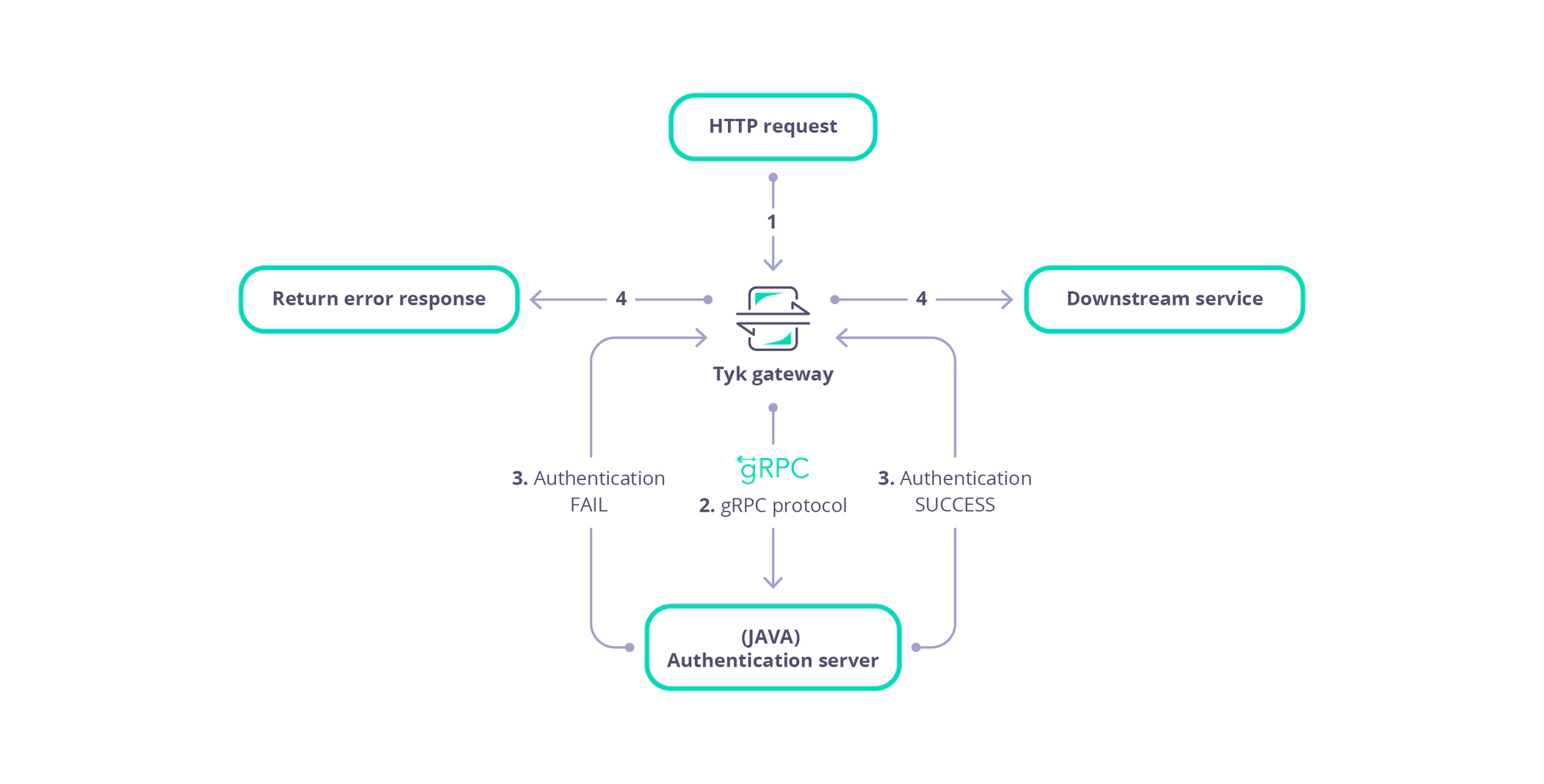gRPC
Last updated: 3 minutes read.
gRPC is a very powerful framework for RPC communication across different languages. It was created by Google and makes heavy use of HTTP2 capabilities and the Protocol Buffers serialisation mechanism to dispatch and exchange requests between Tyk and your gRPC plugins.
When it comes to built-in plugins, we have been able to integrate several languages like Python, Javascript & Lua in a native way: this means the middleware you write using any of these languages runs in the same process. At the time of writing, the following languages are supported: C++, Java, Objective-C, Python, Ruby, Go, C# and Node.JS.
For supporting additional languages we have decided to integrate gRPC connections and perform the middleware operations within a gRPC server that is external to the Tyk process. Please contact us to learn more:
Tyk has built-in support for gRPC backends, enabling you to build rich plugins using any of the gRPC supported languages. See gRPC by language for further details.
Architectural overview
An example architecture is illustrated below.

Here we can see that Tyk Gateway sends requests to an external Java gRPC server to handle authentication, via a CustomAuth plugin. The flow is as follows:
- Tyk receives a HTTP request.
- Tyk serialises the request and session into a protobuf message that is dispatched to your gRPC server.
- The gRPC server performs custom middleware operations (for example, any modification of the request object). Each plugin (Pre, PostAuthKey, Post, Response etc.) is handled as separate gRPC request.
- The gRPC server sends the request back to Tyk.
- Tyk proxies the request to your upstream API.
Use cases
Deploying an external gRPC server to handle plugins provides numerous technical advantages:
- Allows for independent scalability of the service from the Tyk Gateway.
- Utilises a custom-designed server tailored to address specific security concerns, effectively mitigating various security risks associated with native plugins.
Limitations
At the time of writing the following features are currently unsupported and unavailable in the serialised request:
- Client certificiates
- OAuth keys
- For graphQL APIs details concerning the max_query_depth is unavailable
- A request query parameter cannot be associated with multiple values
Developer Resources
The Protocol Buffers and bindings provided by Tyk should be used in order for successful ommunication between Tyk Gateway and your gRPC plugin server. Documentation for the protobuf messages is available in the Rich Plugins Data Structures page.
You can generate supporting HTML documentation using the docs task in the Taskfile file of the Tyk repository. This documentation explains the protobuf messages and services that allow gRPC plugins to handle a request made to the Gateway. Please refer to the README file within the proto folder of the tyk repository for further details.
You may re-use the bindings that were generated for our samples or generate the bindings youself for Go, Python and Ruby, as implemented by the generate task in the Taskfile file of the Tyk repository.
If you wish to generate bindings for another target language you may generate the bindings yourself. The Protocol Buffers and gRPC documentation provide specific requirements and instructions for each language.
What’s next?
See our getting started guide for an explanation of how to write and configure gRPC plugins.